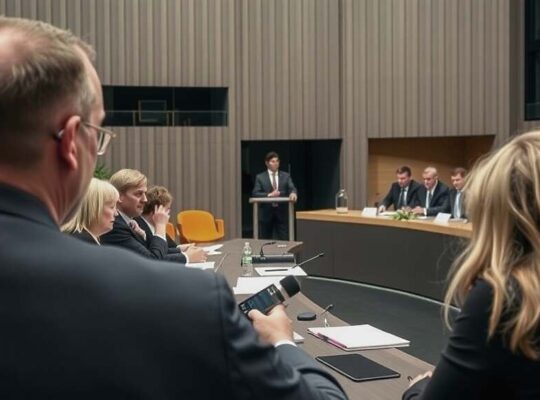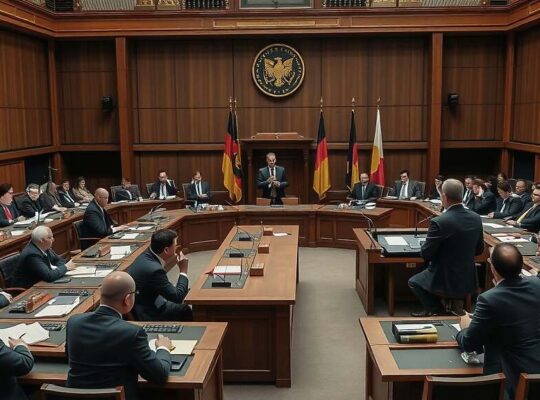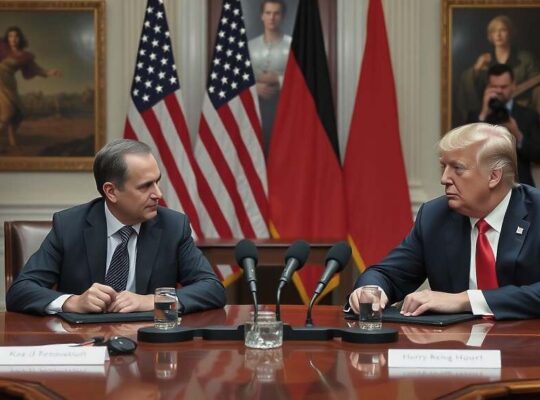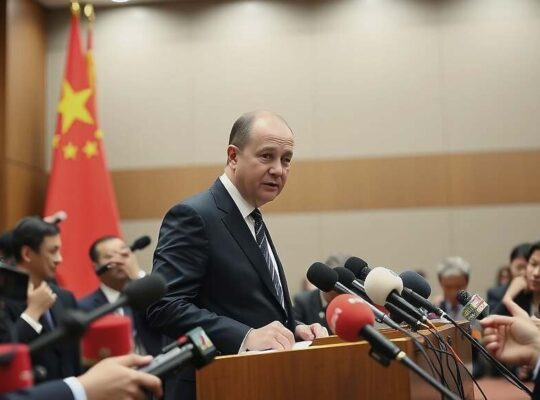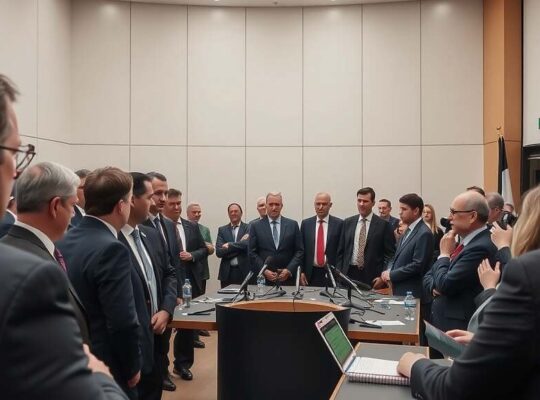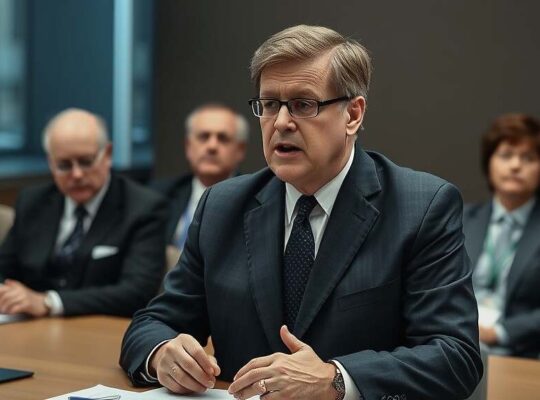Chancellor Friedrich Merz of the Christian Democratic Union (CDU) has lauded the recently signed ceasefire agreement in the Gaza Strip, framing it as a potentially transformative moment for the region. In a statement released Friday, Merz credited the accord to a confluence of diplomatic efforts, notably singling out US President Donald Trump for his “peace initiative” and acknowledging the roles of Qatar, Egypt and Turkey as crucial mediators. He further asserted that the Israeli government had “paved the way” for the ceasefire, a phrasing that immediately drew scrutiny regarding the complexities of the conflict’s origins.
While expressing cautious optimism, Merz emphasized the urgent need for swift and decisive implementation. The return of hostages, including German nationals, remains paramount, as does the stabilization of the ceasefire itself. The immediate provision of humanitarian aid to the beleaguered population of Gaza was also highlighted as a critical priority.
The Chancellor’s pronouncements, however, quickly sparked debate, particularly concerning the apparent deference to President Trump’s involvement. Critics have questioned the legitimacy of attributing such a precarious agreement to a singular initiative, especially considering the highly contested history of US policy regarding the Israeli-Palestinian conflict. Some political analysts suggest Merz’s language is intended to bolster ties with the Trump administration, potentially at the expense of a more nuanced and impartial German stance.
The German government has pledged additional funds for humanitarian assistance and announced its intention to co-host an international reconstruction conference for Gaza alongside Egypt. Merz added that Germany is prepared to assume responsibility within a proposed “peace council” championed by Trump, a commitment which risks entangling Germany in a potentially politicized and controversial forum.
Furthermore, Berlin intends to support reforms within the Palestinian Authority and to expand the European Union’s missions bolstering border security and civilian policing within Palestinian territories. The effectiveness and impartiality of these measures, however, remain open to question, particularly given the persistent concerns regarding governance and human rights abuses within the Authority. Observers are watching closely to see whether these stated commitments translate into concrete actions and sustainable progress towards a lasting and equitable resolution.



